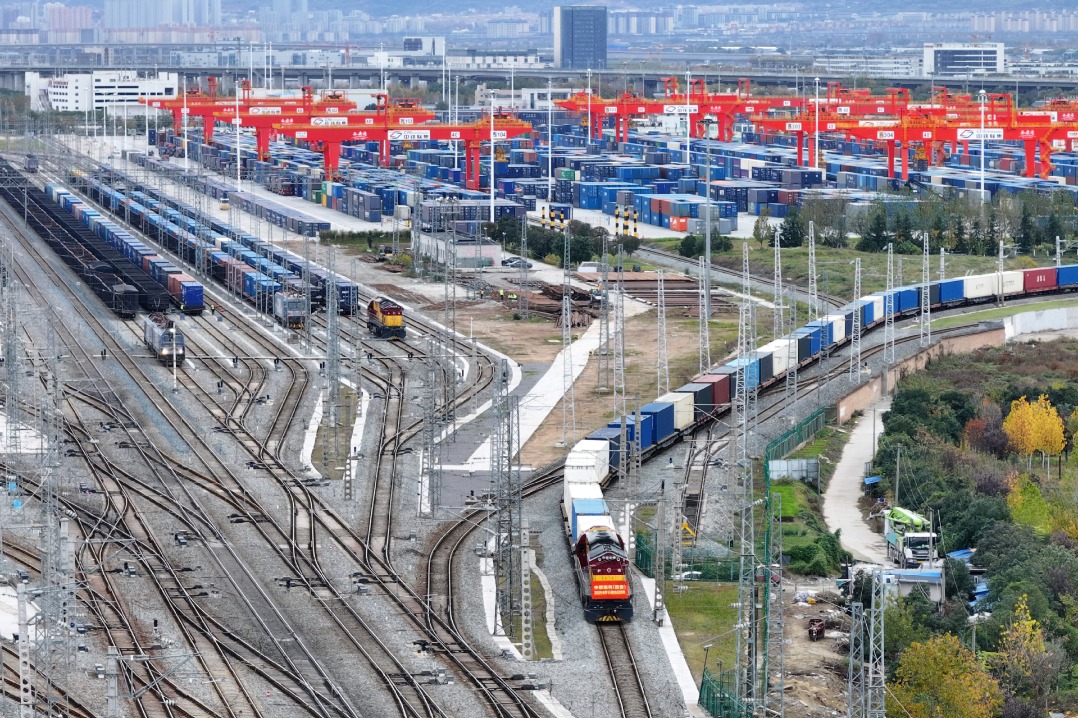'Kingdom of Bicycles' rises again


China is again switching gears after the once-ubiquitous bike makes a comeback as private car ownership clogs the transport grid, Yan Yiqi, Xu Lin and Xu Jingxi report.
Xu Shima was 16 in 1980 and had to learn a trade. He chose bicycle repair. Over the next two decades, it proved to be a wise decision. At that time, China was known as the "Kingdom of Bicycles" and was home to the world's largest army of cyclists.
In the 1990s, Xu's business was at its peak, "allowing me no time to even pee during working hours", he jokingly recalls.
But in 2000, Xu had to abandon his trade. Bicycles, once a necessary betrothal gift for a bride in China and the dominant means of transportation from Beijing to Xu's hometown of Hangzhou, capital of Zhejiang province, had been squeezed off the streets by electric bicycles and cars.
Xu sold fruits and worked as a factory security guard to make a living. He had little interest in returning to bicycle repair - especially not in the years when people grew wealthy and private car ownership became regarded as a sign of success and a status symbol, while sweaty pedaling started to be seen as pitiful.
Yet the tide has again turned, and in 2009 Xu returned to his trade and now repairs dozens of bicycles a day.
Xu is one of 155 bike mechanics at Hangzhou Public Bicycle Transportation Development Co and maintains the company's nearly 70,000 public bicycles in the city.
"I'm glad cycling is popular again," says Xu.
Inspired by the public bicycle system in Paris, Hangzhou launched its own project in May 2008. Authorities hoped to ease the city's increasing traffic jams, which have plagued many cities as private car ownership exploded.
The initial idea was to incorporate public bicycles into the city's public transportation system to cover the "last kilometer". The term refers to distances between two places that can't be covered by bus and are too short to justify taking a cab but too long to walk.
The service has been well received.
"The citizens' enthusiasm toward public bicycles was beyond my expectation, and we can see now that the bicycles travel a much greater distance day-to-day than just the last kilometer," says Zhang Fumin, general manager of Hangzhou Public Bicycle Transportation Development Co. The company manages the city's public bicycles.
Over the past five years, the system has developed to include 697,000 public bicycles and 2,962 service stations around the city, with an average of 257,500 rentals in the city with a population of 8.8 million. The highest rental record is 378,500 times in a day.
In 2011, Hangzhou was named as having one of the world's eight best public bicycle service programs by the British Broadcasting Corp's Travel Channel.
Hangzhou's success is an encouraging example for many other cities in China, which are gripped with problems of heavy traffic and air pollution.
Shanghai, Guangzhou and Wuhan soon followed Hangzhou and introduced their own public bicycle rental services to help tackle the challenge of transporting a growing population across ever-expanding urban areas in a green and effective way.
In 2010 alone, 20 more cities joined the list. So far, 65 cities have launched 73 public bicycle systems (some cities run two systems for varied purposes), the China Office of the Institute for Transportation and Development Policy (ITDP) reports.
"It's natural that people will figure out a solution when the traffic jams and environmental pollution reach a certain point," says Chen Yanyan, a professor at Beijing University of Technology's Transport Research Center.
"Cycling has proven a green and good method for the 'last kilometer'."
Li Shanshan from ITDP's China Office agrees. Li attributes the recent return of cyclists on the streets to pragmatism, which has overridden the lowly social status stigma of cycling.
"Within 5 kilometers, cycling is faster than other public transportation methods," Li says.
"Public bike-sharing systems solve people's problems of finding a parking space when they ride their private bikes and reduces concerns about their bikes being stolen. It's also convenient to fetch and return a bike at any service site across the city."
Hangzhou has set an example.
For Yao Xinfang, riding a bicycle is "cool" in the city of Hangzhou, which has fine weather, bicycle lanes and the picturesque scenery of the West Lake.
The feeling is even "superb" when passing cars stagnant in a traffic jam, adds the 29-year-old Jiangxi native, who has worked in Hangzhou since 2006.
Yao started to ride public bicycles to work in 2009, when she was on the verge of leaving the city.
"My salary doesn't allow me to rent an apartment downtown where my company office is located. I live in the far north of the city, and it used to take me two hours on a bus to get to the office in the morning, which is very exhausting," she explains.
Two hours would have been long enough for her to travel twice around her small hometown. Then, a friend introduced her to public bicycles. Before that, she had tried riding an electronic bicycle, but it was stolen a month after she bought it.
Now, Yao rides bikes from her home to a bus stop where fewer people are waiting and takes the bus through the less busy roads. She then gets on another public bicycle to navigate through the busy streets to her office.
"The combination of bus and bicycle saves me more than 40 minutes every day, and I don't have to worry about the bicycle being stolen anymore," she says.
Li from ITDP says she believes in the potential of public bicycles in China.
As most cities are under pressure to curb air pollution, they are more than willing to invest in public bicycle rental services, which has proven effective compared to other public transportation methods and requires much less initial funding, she says.
This is good news to Xu, who travels with his tools to up to 40 service stations every day to fix broken bicycles.
During the national holidays when tourists pour into Hangzhou, he has to repair at least 150 bicycles daily.
But Xu doesn't care about the workload.
"Selling fruits or guarding warehouses isn't what I'm good at. I have been repairing bicycles for more than 30 years. I am glad I can still be busy with the only job I excel at," he says.
Contact the writers through
yanyiqi@chinadaily.com.cn.
(China Daily Africa 07/05/2013 page26)
Today's Top News
- Manufacturing rebounds in December
- PLA wraps up military drills around Taiwan
- Ties with Russia expected to bear fruits
- Confidence, resolve mark China's New Year outlook
- Xi urges solid work for more progress
- Confidence, resolve mark China's New Year outlook: China Daily editorial






























